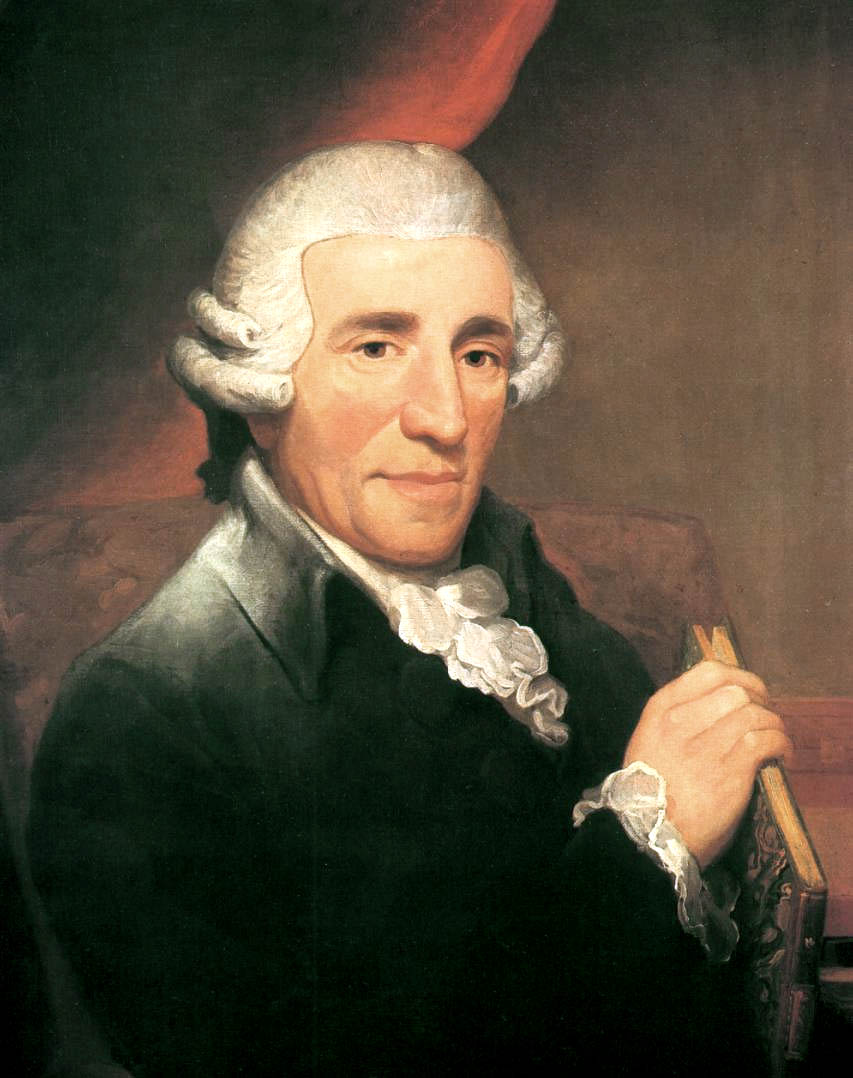

Franz Joseph Haydn is one of the archetypical Classical composers. He worked for the wealthy and influential Esterházy family in Hungary, which was part of the Austrian Empire. In their employ, Haydn was responsible for composing music for concerts which were held twice a week, as well as liturgical music and pieces for various festivals. Haydn believed that his isolation from the mainstream music of the time forced him to develop a unique and original style.
His music was published across Europe, and became the standard for the time. He is mainly known for his symphonies, of which he wrote over a hundred. His early works followed the standard three-movement "fast-slow-fast" scheme found in concerti and sonatas, but Haydn eventually pioneered the four-movement form that became standard in the Classical period. Haydn counted Ludwig van Beethoven among his students, and was a friend and mentor to Wolgang Mozart, who called him "Papa Haydn." When Prince Nicolaus Esterházy died in 1790, Haydn took two concert tours in England, which made him quite wealthy. He returned to Vienna in 1795, living the life of a rich and famous composer until retiring in 1803. In the summers, Haydn lived in Eisenstadt with the Esterházys, who kept him on as kappelmeister until the very end of his life.
Haydn's most recognizable tune, and that of which he was most proud, was the Kaiserhymne, an anthem written for Emperor Francis II.
String Quartet, Opus 76
Symphony No. 94, Movement 2
Trumpet Concerto, Movement 3
Kaiserhymne
Does isolation from other artists and musical trends help or hinder creativity?